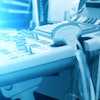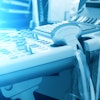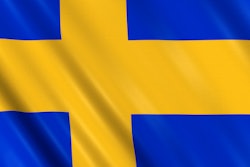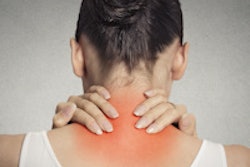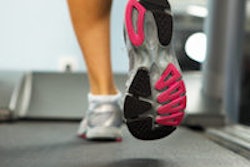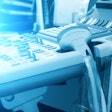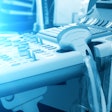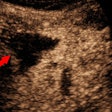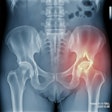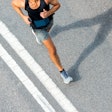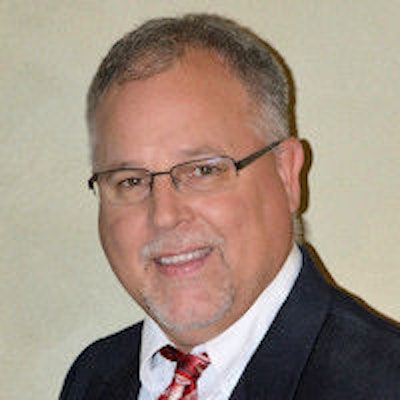
In our previous contributions for AuntMinnie.com, strength and conditioning coach Mark "Coach Rozy" Roozen and I have focused on helping sonographers live and scan pain-free. In this article, though, I'd like to share a personal story that reminded me once again how important we as sonographers really are.
When Coach Rozy and I hit the speaking circuit, we get to talk with a lot of sonographers with different job tasks. In addition to engaging in discussions about physical issues, I unfortunately hear comments such as "I'm just a sonographer," or "others I work with think of me as just a sonographer."
Never say, "I'm just a sonographer."
If you are a sonographer who truly believes and feels that you are just a sonographer, then you should find another career. Our job is too vital to think that we don't have a major effect on every single person we work on.
Lifesaving work
The ultrasound exam we perform could be the single biggest factor in saving a life. I know this to be true, both professionally and personally.
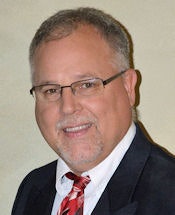 Cardiac sonographer Doug Wuebben.
Cardiac sonographer Doug Wuebben.In November 2015, my wife, Milissa, was diagnosed with breast cancer. She had been screened every year with mammography and also received an ultrasound because she had dense breasts and cysts.
After feeling a lump in her breast, she made an appointment with a local medical clinic, where she received both a mammogram and an ultrasound. It wasn't the mammogram that caught the cancer, however. The ultrasound showed an area that looked "unusual"; one of the cyst-like structures didn't look like the rest.
The biopsy came back positive for breast cancer. I still remember the Monday when she met me at work to tell me the news. All I could get out was, "What the *&^%."
If you met my wife, you would see her inner strength, focus, and incredible resiliency. Milissa is also a healthy, fit woman. She eats right and works out; she does Coach Rozy's training and boot camp three times a week. She doesn't drink, smoke, or do drugs. Up until that Monday in November, she took zero medications. She does things right when it comes to taking care of herself and her body.
The next few weeks were a whirlwind of medical procedures. To make a long story short, Milissa had a double mastectomy on December 23, 2015. We came to the decision that a double mastectomy was the best course for our family and our situation.
Milissa recovered nicely from surgery and in less than three weeks was back at work. I told you she was tough. I'm happy to report that based on all the test results, everything went better than planned. She did not have to do chemo and/or radiation, and life is back to near normal at our house.
Best of the best
It was the ultrasound that caught the cancer, and early. There isn't a blood test, an x-ray, or any of a number of tests that would have found it.
I personally know the sonographer and the radiologist who performed the ultrasound exam. Jan Schrempp and Dr. Will Eidsness are the best of the best. I meet with Jan every month, as her clinic and my hospital do joint echo meetings.
As sonographers, there is a lot of responsibility on our shoulders. It is our duty and obligation to meet that challenge every day, on every person, and in every situation in which we do our job.
I shudder to think what would have happened if my wife had her study done by a subpar sonographer. If the sonographer was tired and in a hurry from a long, busy day at work. If the sonographer looked at his or her job as just putting in time, taking a few pictures, and making a paycheck. If the sonographer didn't take a few extra seconds and put a little more effort into that "something" that was there. If the sonographer was having pain and injury issues and cut corners because of that pain and injury.
Had any of these been the case, my wife would still have cancer.
Jan and Dr. Eidsness did an extraordinary job that day. The end result was that my wife was found to have a stage I, small, easily treatable breast cancer. Had that not been the case, what would the final result have been? Stage II, III, or IV? From an easily treatable cancer to potential devastation. Thank you, Jan Schrempp. Thank you, Dr. Eidsness. The extraordinary, superhuman work you did that day on my wife can never be repaid!
Making a difference
From my personal experience came a new understanding, appreciation, and passion for what I do. Every day that I go to work, I can and do make a difference in the lives of the people whom I work on.
You will notice that I didn't use the word "patient." That word comes across as much too informal and antiseptic. Every day we are working on grandmas, grandpas, moms, dads, and children. Every day we are working on a person who is somebody's world.
The things you do or don't do while working on a person could mean a death sentence. My wife could still have cancer.
You have to be the best you can be on every person you work on. You have to be. If you are mentally tired at the end of the day -- and we all have those days where we are working on the last person of the day and we are tired, both mentally and physically -- you must mentally snap yourself to attention and do your best work.
If you are doing your job with injury and pain, do something to help your body and yourself. Even if your solution is not the education that Rozy and I offer, find something that works for you. If you are just doing this job because you make good money and you don't have to work weekends, please quit. You are not in the right career.
Every person, every time
As sonographers, we must be on task 100% of the time with every study that we do. That's a lot of pressure, but that's the way it is and the way it must be. To keep myself on task, I designed this simple button to be worn as a reminder to do my best each and every time I work on a person.
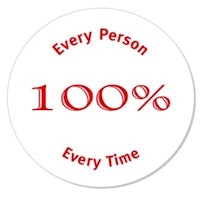
After thinking back to the day Jan and Dr. Eidsness found Milissa's cancer, I wanted to get the word out to all sonographers to remind them of the utmost importance of doing their very best 100% of the time, on every person and on every study.
Coach Rozy and I now plan to offer this button to all of the folks who attend our presentations at conferences. Our hope is that it will be worn daily as a reminder.
We will also send you one of these free badges if you wish. Email me at [email protected] and our team will get one out to you. If you do choose to email me, please also share your comments on your work and on what Coach Rozy and I do or have done for you. We enjoy meeting folks and hearing their feedback.
Doug Wuebben has spent the past 18 years as a registered diagnostic cardiac sonographer (RDCS) for adult and pediatric echocardiography in southeast South Dakota. Doug is also the technical director of his accredited echocardiography laboratory, and he has become a consultant on exercise and ergonomics in the area of sonography. Doug is a national speaker and internationally published author on the subjects of exercise/ergonomics, pediatric telemedicine, and lab accreditation. One of his passions at the moment is educating and helping sonographers extend their careers through simple exercise and ergonomic techniques.
Mark Roozen has a master's degree in health, physical education, and recreation with emphasis in exercise physiology. He is a certified strength and conditioning specialist, a certified personal trainer, and a fellow of the National Strength and Conditioning Association (FNSCA). He has been in the strength, conditioning, and performance field for more than 28 years. Mark is the owner and director of Coach Rozy, LLC, a training and consulting company, and is co-owner of 911 Tactical Performance, which works with first responders and tactical athletes. He is also co-founder of Live Pain Free, which works with groups, teams, and corporations to help their staff and employees achieve peak levels of health, wellness, and performance.
The comments and observations expressed do not necessarily reflect the opinions of AuntMinnie.com.


